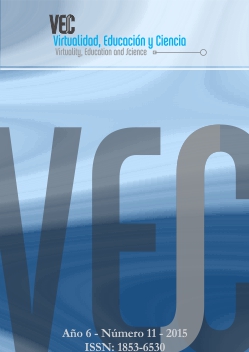Survey of Multi-Media Assistive Technology as Universal Accommodations for Students with Special Needs
DOI:
https://doi.org/10.60020/1853-6530.v6.n11.12766Keywords:
student-written notes, diversity in classroom, transcriptions, audio recording, disability services, accommodationsAbstract
The Americans with Disabilities Act of 1990 requires that students with special needs receive ‘academic adjustments, reasonable modifications, and auxiliary aides and services’. This project supports universal accommodations, which are special assignments or teaching techniques that enhance student learning without lowering academic standards. Shared student-written notes, audio lectures, and written transcriptions of the lecture are the reported forms of multi-media assistive technology (MAT) that are considered in this study. Sharing these tools with students using an online medium helps college students adapt to the content in a healthy way, obtain ideas effectively, and take responsibility for their learning. Implementation of the proposed MAT resources can reduce reported negative reactions and stigmas of participation that come from enforcing policy on student disabilities, and create advantages in the classroom for all students. The current sample of college students report that MAT accommodations are significantly useful and are likely to use these resources voluntarily.Downloads
Download data is not yet available.
Downloads
Published
2015-11-26
How to Cite
Howard-Bostic, C. D., Andasheva, F., & Smith, J. E. (2015). Survey of Multi-Media Assistive Technology as Universal Accommodations for Students with Special Needs. Virtuality, Education and Science, 6(11), pp. 9–19. https://doi.org/10.60020/1853-6530.v6.n11.12766
Issue
Section
Theoretical Basis and Research
License
The generation of derivative works is allowed as long as it is not done for commercial purposes. The original work may not be used for commercial purposes.


